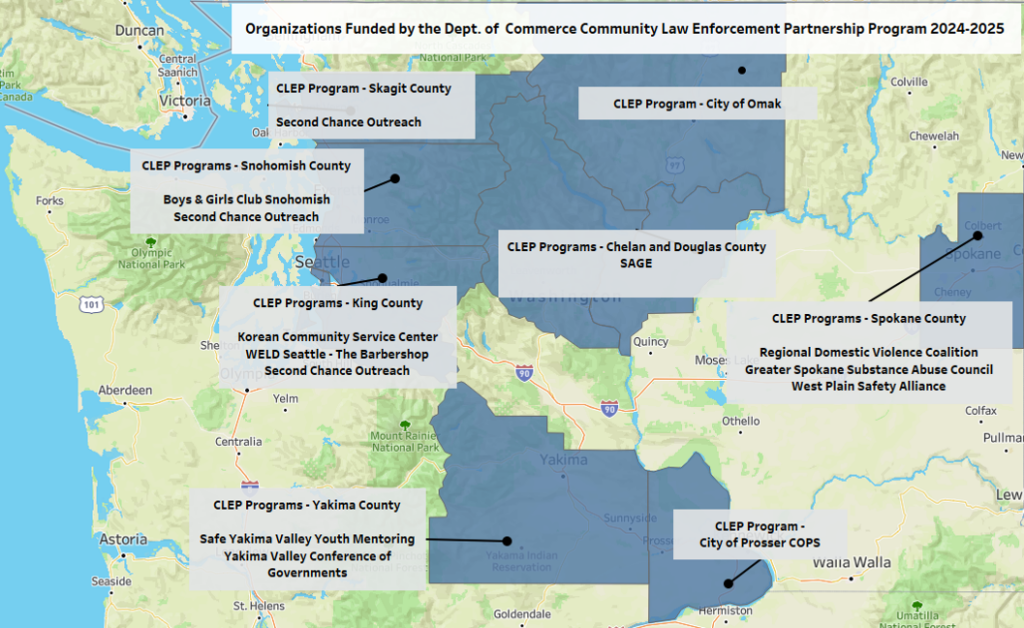The Washington Legislature created the Community-Law Enforcement Partnership (CLEP) program in 2021 to foster community engagement through neighborhood organizing, law enforcement and community partnerships, youth mobilization, and business engagement. (RCW 43.330.545) The work is intended to mobilize communities to insist on equitable and accountable practices resulting in community participation in public safety efforts and establishing cooperative lines of communication between civilians and law enforcement. The CLEP program was extended by the state legislature in 2023 with Governor Inslee signing SB 5561. This legislation provides for CLEP funding until 2029.
CLEP grant programs
CLEP grant programs are designed to mobilize community participation in public safety efforts and establish cooperative lines of communication between residents and law enforcement.
Eligibility for funding
Participants of the CLEP grant programs funds must:
- Be a public agency or non-profit community-based organization
- Have a primary service area within one or more communities in Washington state.
- Have at least one year of verified experience with coordinating events, meetings, or relationship-building activities with community members and law enforcement.
- Have established or be willing to establish a coordinated effort with committed partners, which must include law enforcement and organizations that are committed to diversity, equity, and the inclusion of community members, including organizations whose leadership specifically reflects those communities that are the most impacted by racism.
For SFY 24/25, (July 2023-June 2024; July 2024-June 2025), 15 grants have been awarded across Washington state. These programs will mobilize community participation in public safety efforts and establish cooperative lines of communication between residents and law enforcement. Sign up for our mailing list for updated information about the CLEP program.
Grant awardee activities

The Community Law Enforcement Partnership Program funds 15 organizations throughout the state. Among other things, successful participants are focusing on:
- Building substantive law enforcement-community partnerships
- Mobilizing youth to partner with neighborhood groups and law enforcement to prevent violence
- Engaging businesses to help prevent crimes through safety training and other prevention initiatives;
- Having established priorities, policies, and measurable goals in compliance with the requirements of the project; and
- Collecting and reporting data and information as required by Commerce.
Programs are seeking to build trust between community members and law enforcement by:
- Facilitating purposeful antiracist practices and the development of policies that lead to equal treatment under the law
- Establishing clear expectations for law enforcement to be competent to practice fair and equitable treatment, including facilitating dialogue between law enforcement and community members to increase understanding of the impact of historical racist practices and current conflicts
- Community members regularly informing law enforcement, through presentations, workshops, or forums, on community perceptions of law enforcement and public safety issues
- Educating community members on the role and function of law enforcement in the community
- Clarifying expectations of law enforcement and the role of the community in crime prevention
- Educating community members on the best practices for reporting emergency and nonemergency activities
- Recognizing community members for effective engagement and community leadership
- Recognizing law enforcement officials for efforts to engage underrepresented communities, improve community engagement and empowerment, and reform law enforcement practices

